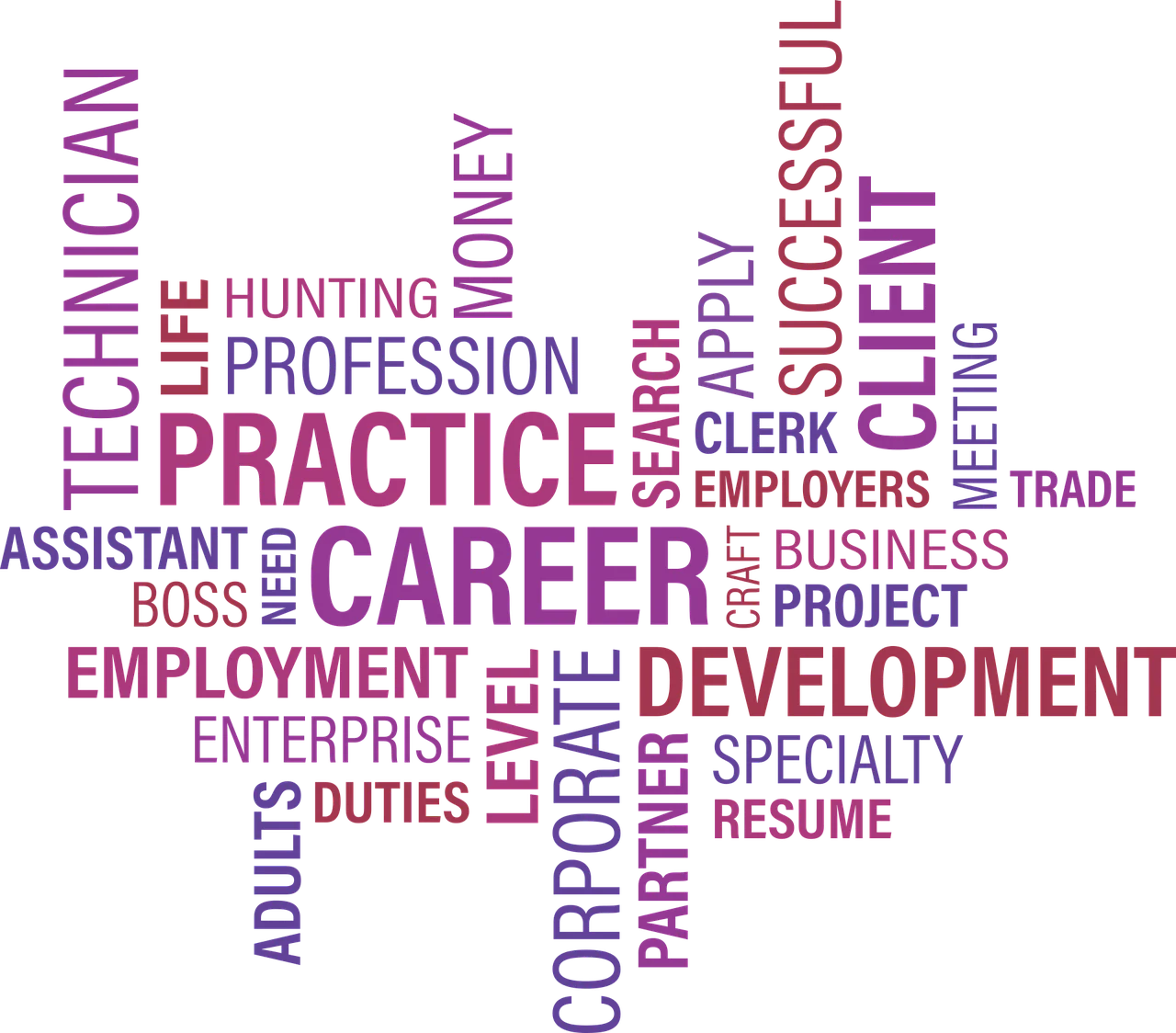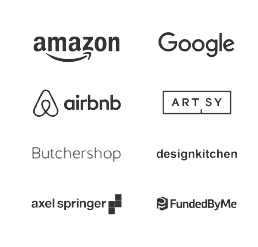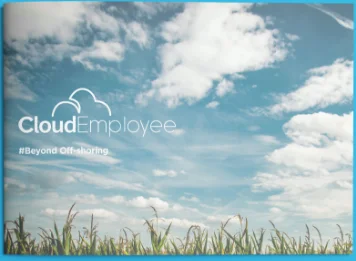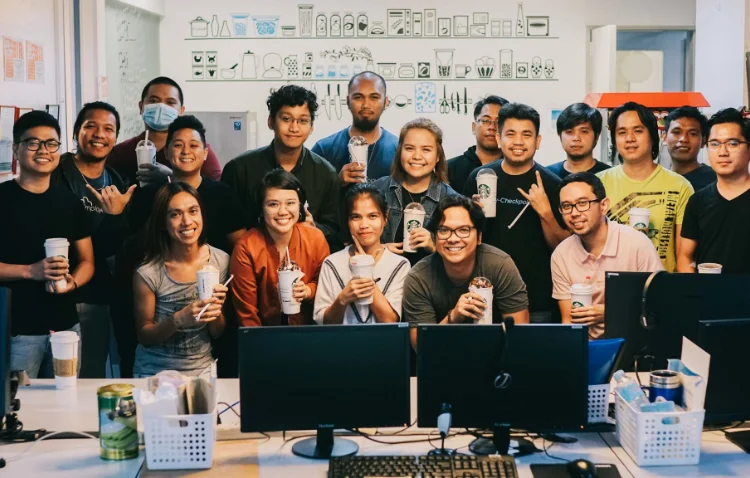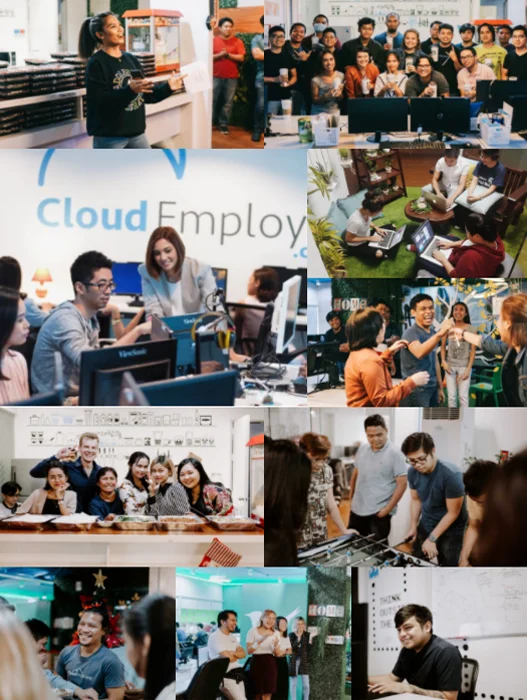Getting to talk with various developers and tech leaders is one of the perks of being in IT headhunting. I have become close friends with many of them over the years, and as such, pick their brains on many areas of onboarding and how remote onboarding is more popular than ever since the Covid-19 pandemic.
There is no denying that the pandemic forced many modern organizations that had not embraced remote work to do so. For the most part, remote work became a necessity for survival, both for employees and employers alike. Studies show that a whopping 99% of people, including software developers, are looking to work remotely.
The benefits of remote working are primarily understated. For one, remote working helps business owners save money on office overhead costs while enhancing productivity. Want to stop wasting money on an in-house development team? The solution is not far-fetched; hire an offshore development team.
Many employers find onboarding developers remotely daunting and challenging. Likewise, potential employees are often confused about the process. Want to improve the efficiency of your software development project? You need to develop a sound, remote onboarding process.
There isn't an across-the-board solution to onboarding. Notwithstanding, we've compiled a detailed onboarding checklist to help you provide an enriching and refreshing onboarding experience for your development team.
1. Start with a recruiter onboarding checklist.
Before you commence the remote developer onboarding process, it's essential to create a recruiter onboarding checklist. This will help you avoid certain pitfalls that most managers encounter when developing a remote onboarding experience for recruits.
Ideally, a recruiter onboarding checklist should cover everything your developers will need to settle in properly, like setting up their company accounts, organizing an online workspace, and giving them orientation. Here are some items that should form part of your remote onboarding checklist.
- Schedule a commencement date.
It's essential to commence your onboarding process immediately after your recruits sign the dotted line on their contracts. Many organizations start the onboarding of their recruits several weeks from their official resumption date.
- Make provisions for work systems.
There's no gainsaying that developers, especially veteran developers, like to work with their equipment. Regardless, it's standard practice for software companies to provide and set up systems for their developers.
Mandate your IT team to send all specified hardware and install all the necessary software your developers will need for the job. Depending on the nature of the development project, you may need to invest in more tech.
- Digitize your pre-boarding process.
The pre-boarding process encompasses all the activities leading up to the developer's first day. Many recruits find this process boring and snore-worthy. Develop a pre-boarding program that is fun and engaging.
Are you looking to provide a seamless remote pre-boarding process for your developers? Then, you may want to digitalize the entire process. First, develop an induction or orientation hub for the developers.
This induction hub can exist as a standalone entity or form part of your company's intranet. Whichever way, ensure the hub is user-friendly, intuitive, and mobile-responsive to provide flexibility. Furnish your induction hub with materials like training documents, learning modules, tools, company videos, and an onboarding schedule.
2. Assign a mentor.
Many recruiters are usually sceptical about remote onboarding because of past negative experiences. Besides, recruits struggle to adjust to the new work cultures and environments. Rather than throw new developers into the work environment, organizations now assign mentors to guide them throughout the onboarding process.
The role of a mentor is to provide mentoring and support to the new hires. Specifically, that entails walking them through the entire remote onboarding process and provide answers to whatever questions they may have. Mentoring plays a critical role in the first few weeks on the job.
Ideally, a mentor should be a senior colleague or a supervisor with experience working in the development team. Bear in mind that there could be friction between the mentor and mentee. Sometimes, assigning all your new developers to a senior member of the development team could prove counterproductive.
You see, the thing is, senior developers may barely have time for the newcomers due to their many responsibilities. Besides, an over-controlling mentor or supervisor can negatively impact their professional development.
Consider assigning your newbies to an employee with slightly superior skills and experience. That way, the newbie will relate well with the mentor and feel free to ask questions.
Avoid assigning a developer to a mentor with plenty of responsibilities. Remember, whoever you assign to them will be responsible for them throughout the entire onboarding process.
Make the introductions early on, probably through a one-on-one video call. Before the formal introductions, you need to get them on board with your expectations regarding the mentorship.
3. Create a training program.
A training program is a critical aspect of a remote onboarding process. It is essential to develop a training program for the new developers. There's no gainsaying that a well-trained workforce translates into improved performance, increased productivity, and more significant ROI.
The training program is to get your new developers equipped with the proper knowledge and tools they need to carry out their tasks. During training, the facilitator needs to take the recruits through the company work processes.
When creating a training program for your recruits, tailor the program to empower them with problem-solving skills. Creating a program aims to get the most out of your new developers that serve the company's software development needs.
Your training program must be adaptive and transformative. It's not out of place to incorporate assignments and feedback into the training program from start to finish. The information you get can come in handy in the training and onboarding process for the next set of new hires.
The first couple of weeks of training are critical to a remote developer's growth. Create training programs that evaluate the developer's skills gap and experience level. You can assign a senior developer to provide a virtual demonstration with some past software development projects. The good thing about training your recruits is that you continue to reap the rewards months after the training. The effects will be seen in the employee's performance and productivity.
4. Plan the first day on the job.
Research shows that 60% of recruits experienced problems on their first day on the job. Whether it's on-site or remote, the first day on a job can be overwhelming. By preparing for the first day, you are one step closer to improving the onboarding experience of your recruits.
First, you need to plan your welcome onboarding process. Remote welcoming onboarding is similar to a physical workplace orientation. Take the initiative and make available written documents and digital learning modules covering workplace culture and company workflows. Mandate your newbies to familiarize themselves with their respective team's workflow materials before their first day on the job.
So you know, there's no one-size-fits-all approach to structuring the first day. Ideally, it's essential to start with a welcome chat with a top executive at the company. The executive role is to welcome the recruits into the company officially.
Here's a typical checklist for the first day on the job;
- Sharing the immediate and long-term company goals with the recruits.
- Introduction to the development team and workplace culture.
- Walkthrough of team workflows.
- A briefing on organizational key performance indicators (KPIs).
- Scheduling pair-programming tasks between development team members.
When making a PowerPoint presentation on critical information, consider doing so through screen-sharing. Encourage the recruits to ask questions and be ready to provide answers. Moreover, your role as a recruiter is to help the developers adapt to remote working.
It's important to remind them of the expectations placed on them by the company on the first day. Doing so will instil responsibility in them and motivate them to meet those expectations. Beyond the first day, try to keep tabs on the progress of the developers. Consider scheduling one-on-one virtual meetings with the new development team members periodically, possibly after the first month.
5. Develop a collaboration and communication strategy.
Knowledge sharing and effective communication are critical to improving the performance of a software development team. Communication should be a critical aspect of your company work culture.
With that in mind, try to promote healthy communication between team members and project managers. When looking to implement a collaboration and communication strategy, make sure it aligns with your company needs.
Thanks to innovative technologies, recruiters can optimize their communication strategies. With that in mind, it behooves you to find tech tools that enhance collaboration and communication. These collaborative tools provide an informal workspace environment to facilitate communication and knowledge sharing between project managers and teams.
Some of the best team collaboration software in the market now include Asana, Slack, Trello, Microsoft Teams, Confluence, Basecamp, Wrike, and Dropbox. Ensure you create accounts for the new members of your development on all the collaboration tools your organization uses for the onboarding process. Also, ensure each developer understands how to use each collaboration tool and under what circumstances.
6. Create a healthy development work environment.
When it comes to the remote onboarding process, it's usually a challenge to achieve social integration. In contrast to the challenge, remote onboarding thrives in a healthy development work environment. It's vital for your new development members to feel a social and emotional connection with fellow team members.
With that in mind, consider putting in place the correct practices and policies that ensure social connection. Take the initiative and organize fun team activities. Those wondering how you can do so remotely work the same way as planning it physically. All you have to do this time around is to include it into their calendars.
Set up a virtual lunch with the entire workforce where everyone is allowed to make formal introductions. Go a step further and mandate the rest of the workforce to send DMs to the newbies.
Several collaborative tools promote social connection. Take advantage of the "Donut" feature on Slack to set up group lunch dates. Moreover, group lunch is known to foster communication among team members. The takeaway here is to provide plenty of avenues and opportunities for new members of your development team to develop social connections with other team members.
7. Create an onboarding project.
Regardless of their skill sets, it's unwise to assign significant software development projects to new developers from the start. Your onboarding process can also serve as a trial period to ease the recruits into the company and team workflows.
Creating an onboarding project allows project managers to test run a developer's skill without jeopardizing a significant software development project. With that in mind, set up a small onboarding task for your new developers to try their hands on.
The project should be something relevant to your development team's typical workload. However, try not to make it too technical so you don't dampen the spirits of the newbies before the actual work starts. A better option is to assign them to a project that a senior developer has already completed so they can learn.
Try not to dwell on whether they succeed on the onboarding task you assign to them. Allow your prospects to make mistakes and be on hand to correct these mistakes. Mandate the project manager always to give specific and constructive criticisms when assessing their onboarding projects.
It's essential to attach deadlines to the onboarding projects you assign to them. Consider giving them a software development project that encompasses all your processes and set a deadline for the first week. This will enable your new developers to run through your software development process from end to end in a short time.
Like we mentioned earlier, the task shouldn't be too complex or too easy. It behooves you to find the right balance when deciding on a task to do. Notwithstanding, make sure the onboarding task instills in your recruits your company work culture.
I hope you found this article useful. Here at Cloud Employee, we assist both developers looking for work and companies looking to hire dedicated offshore developers across many technologies. Talk to us, learn more about how Cloud Employee works, or see our Developer Pricing Guide.
Work with world leading tech businesses
We connect high-performing software engineer talent in the Philippines with some of the world’s leading and most innovative Tech companies.
Submit CV
